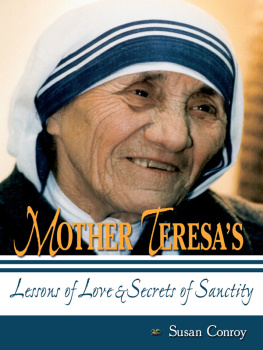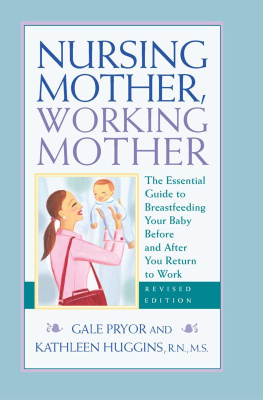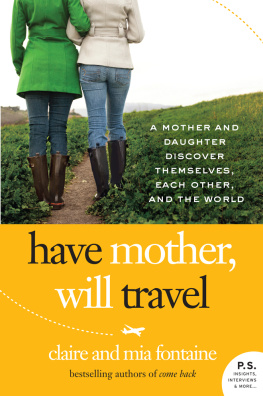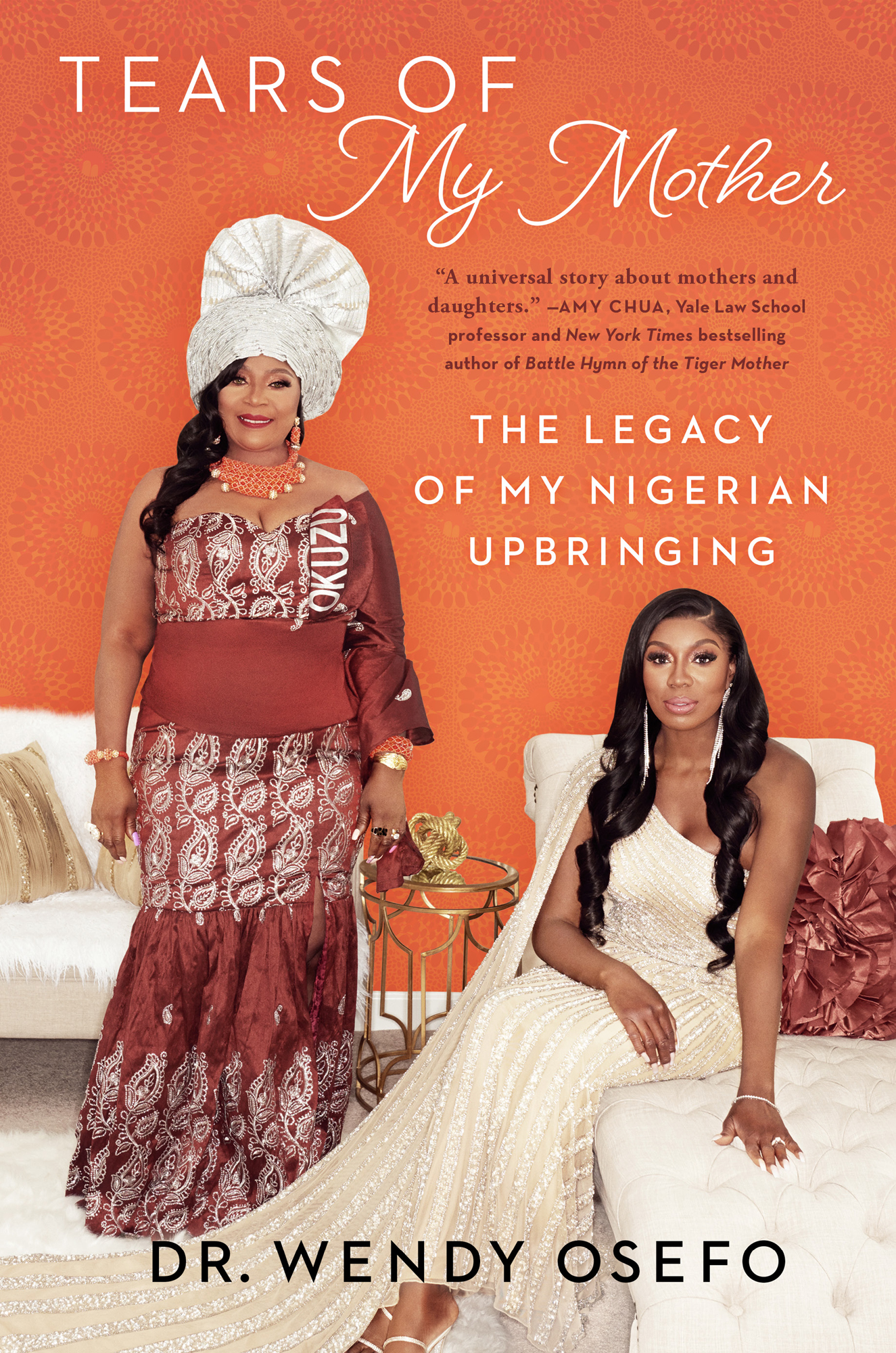Contents
Guide
Tears of My Mother
A universal story about mothers and daughters.
Amy Chua, Yale Law School professor and New York Times bestselling author of Battle Hymn of the Tiger Mother
The Legacy of My Nigerian Upbringing
Dr. Wendy Osefo
This book is dedicated to any first-generation child who ever felt like they were not enough, who felt that they never belonged. Our story is unique, but that is what makes it so beautiful. In this moment, I hope you feel seen.
INTRODUCTION
I sat in a green armchair in the corner of my kitchen, fiddling with my hair as my mom stood at the kitchen island, cutting fresh okra. Recently, my mother, Iyom Susan Okuzu, had volunteered to cook dinner for my family of five: my husband, Eddie; our older son, Karter; younger son, Kruz; and baby daughter, Kamrynn. She was going to make her signature spicy, comforting palm oil okra soup with pounded yam. Once shed organized all the soup ingredientsokra, red onion, spinach, a habanero pepper, crayfish, assorted meats and spices, ogbono seeds from the African marketthe chopped onion and crayfish went into a pan with hot oil. The room filled with an aroma that instantly took me back in time.
Nigerian food is hearty, rich, and humble, and it dominates my childhood memories. Id see Mom standing in front of the stove, stirring two, three pots of fragrant stews or soups with a slotted spoon. Many nights shed come home exhausted from a twelve-hour nursing shift at the hospital and head directly to the kitchen to fry up meat or fish. The movement in our home always originated in the kitchen. In any Nigerian home, its where the action is. You can have a twenty-room house, but 90 percent of the time, the people who live there will be in the kitchen.
Smelling the sizzling onions, my two sons came barreling in, tossing a football. Their toddler sister, a new walker, tried to keep up. Karter, the spokesman of the group, asked, Whats for dinner? All three kids circled their grandmother, the boys tall enough to peer into the pan. They do the same with me at 4 p.m. when I cook dinner. I make tacos and spaghetti and love experimenting with international cuisines, but cooking Nigerian food makes my heart sing. The fact that my kids favorite dishes are Nigerianlike Moms okra soup and my grandmother Angelas fried plantains (crispy on the outside, soft and sweet on the inside, and spicy when dipped in palm oil)is a testament to the techniques I learned from them when I was a child.
Its not ready yet, said Mom, shooing the kids away with a laugh. The two boys ran out of the kitchen as quickly as they had rushed in. Kamrynn hung back, wanting to help. The highest form of love in our culture is preparing a family meal, and my daughter had instinctively sensed its importance. Go play with your brothers, I told her. I was hoping for some alone time with my mother. I had something to ask her, and to tell her.
We watched Kamrynn toddle out. Mom flashed me a smile and I flashed one back. Then silence.
Stalling, I asked, Hows Jordan doing? My brother, eighteen years my junior, was a sophomore in college.
Hes doing well, she said. Im very proud of him.
I nodded, swallowing a lump. Not that we werent all proud of Jordan, with good reason. Hed grown up well, despite the loss of his father (Jordan and I had different fathers). I just couldnt recall the last time Mom told me that she was proud of me. The expectations for Nigerian girls are so much higher than they are for boys. A girl is considered a failure if she doesnt cook expertly, keep house, marry a good Nigerian man, have children, care for the elders, look fabulous, and be a doctor or a lawyer. Nigerian boys only have to avoid getting a girl pregnant too early and eventually provide for their families. But even then, if boys miss the mark, theyre cut a lot of slack. Theyre given dozens of chances to get back on track, reach their potential, and achieve success. Girls, not at all. Our missteps arent brushed off, and we dont get pats on the back for doing the right thing. Its expected of us, and any failure is met with disapproval by our demanding parents.
I glanced around at my glorious chefs kitchen, the gleaming stainless steel appliances, the hammered copper pots and pans Mom was using. My gaze drifted into the living room, with its creamy walls and yummy plush couch, the colorful accent pillows Id carefully chosen. Just outside the back door, we had ten acres of rolling green lawn and trees for the kids to play in. Two new cars were parked in the driveway. Eddie, the kids, and I had been living in our new house for just over a year, and it felt like home. Buying it was the culmination of our years and years of hard work, first earning our degrees, then proving ourselves in the workplace. Our family oasis was an objective symbol of success, and it felt good, validating, for my mother to spend time here and see the payoff of all her hard work raising me. Itd be even better if she acknowledged it.
When I was growing up in North Carolina, Mom always made our homes look beautiful, even when we lived in more modest places. Our apartments got bigger and nicer as Moms income grew. She started as a nurse and eventually became the director of nursing at major metropolitan hospitals. Still, although we were comfortably middle-class in terms of income, Mom had never figured out how to manage her money. In Nigeria, cash is king. So when Mom came to America, she didnt have the savvy to use credit well and wound up with a bad credit score. Even at fifty-something, she struggles with that financial culture gap.
I got out of the chair and walked to the counter. Can I help? I asked her, sounding a lot like my own daughter. A pot of water was boiling on the stove, just waiting for yam flour to be poured in, the first step in the process of making pillowy, springy pounded yam balls to dip in the soup. I want to help, I said.
Its all under control, said Mom, sending me back to the chair. I sat down, feeling dismissed, which took me back to childhood again. This scene had played out in the kitchen throughout my life when I offered to stand at her side and cook with her. She would refuse the offer, every time. I never pushed it.
My mother had long proven her capability as a woman who didnt need help. Gifted, gutsy, and brilliant, she first came to America at seventeen and single-handedly put herself through college, eventually earning two masters degrees. Not too shabby for an immigrant. She arrived here bright-eyed and bushy-tailed, ready to grab her slice of the American Dream. Then she suffered heartbreak and had to grow up quickly in a country that was not her own. These tragedies made her wiser, but they hardened her, stealing her optimism and the spark in her that I remembered from childhood. Her suffering showed her that the world is often cruel, and never wanting her own children to sulk or be blind to the cruelty of the world, she did not go easy on my older sister, Yvonne, and me.
Watching Mom stir the yam flour in the pot to smooth out the texture, I noticed a slight sheen on her forehead. She made a noise, a hmph, the sound Id heard a million timesher exasperated noise.
Is something wrong? I asked.
She shot me an annoyed expression, another hallmark of hers. Every Nigerian mother has a repertoire of facial expressions and distinctive sounds that show how they feel without having to utter a single word.









